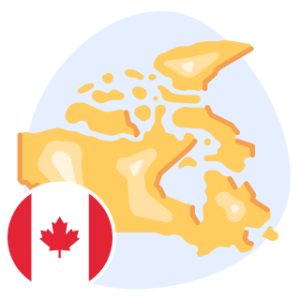Thinking about studying health science in Canada? Whether you’d like to become a hospital administrator, doctor, or radiologist, Canada’s colleges and universities offer many great programs for international students.
Plus, after you graduate, you’ll likely be eligible for Canadian post-graduation work programs. This can help you line up valuable hands-on experience, connect with top researchers and practitioners, and fast-track your career in health care.
Wondering if health science is the right path for you? Here’s a few reasons why you might want to study health science.

Study in an Innovative Field
Canada is home to many medical innovations and discoveries. Two of the most famous include the first production of insulin and the discovery of the T-cell receptor. However, did you know that Canadian colleges and universities are also known for innovative teaching methods
In the 1960s and 1970s, McMaster University pioneered its Standardized Patient Program (SPP). This program employs healthy people to portray scenarios that health science students might face in their jobs. Students benefit from learning in a controlled environment, and from the feedback from their “patients” and instructors. Students in SPP-based classes and exams build strong diagnostic and interview skills. In the years since, this teaching format has been adopted by academic institutions worldwide.
More recently, Canadian schools introduced health science programs that are responsive to evolving needs. In 2016, years before hybrid or online learning became a necessity, Queen’s University introduced Canada’s first fully online 4-year Bachelor of Health Science Honours program. And, as the demand for nurses has grown across Canada, many institutions have introduced new nursing schools and programs, including Thompson Rivers University’s nurse practitioner program which launched in 2023.
While studying, it’s important to stay healthy! Here are some ways you can support your mental health as an international student.

Set Yourself Up for Success
As you consider health sciences programs, it’s easy to feel overwhelmed by options. Focus your search by:
- Thinking about what you love doing, and how that translates to a career. If you love helping people directly, consider a program in a clinical setting like pharmacy or kinesiology. If you enjoy spending time in a lab, or are very introverted, becoming a laboratory technician or studying bioinformatics might be more your speed.
- Do your research. Programs range from a high-level focus where you’ll learn a little about many different fields to specializing in one field. Programs often become more specific with more advanced degrees.
- Learn about different Canadian communities to find your best fit. While major cities like Vancouver and Toronto may have famous schools and diverse communities, they are competitive places. From your program application to post-graduation work, you’ll compete against more people than in smaller cities. While it can take longer to get used to smaller communities, the cost of living is often lower and there are post-graduation work programs that incentivize working in Canada’s more rural and northern areas.
Considering different locations across Canada? Here’s our guide on how to choose where to study in Canada.

Fast-Track Your Career
Did you know that by 2030, the World Health Organization estimates there will be a global shortage of 15 million health workers? That’s a lot of jobs to fill!
By entering a career in the health sciences, you’ll help your community’s ability to grow and thrive. The need for health workers is high: for example, in 2024, Statistics Canada noted almost 120,000 job vacancies in the health care and social assistance sector. Fortunately, many international graduates are eligible for Canada’s Post-Graduation Work Permit (PGWP) program. The PGWPP allows many new grads—especially those graduating from health science programs—to pursue related work in the province or territory they studied in.
These grads are also strong candidates for Canada’s Provincial Nominee Programs (PNP) after at least one year of work experience. Some PNPs are even specifically for health science professionals!
Equally, you might choose to work in Canada for a few years and then return to your home country or move to a third country. Because Canadian credentials are well-regarded, you’ll be set up for success.
Learn more about Canada’s Post-Graduation Work Permit Program.
We hope this guide to studying health science in Canada has sparked your interest! Health care is a growing sector and Canada offers many study and work opportunities if you choose to pursue this rewarding field.
Take the first step towards a rewarding career in health care by exploring your study abroad options with our free ApplyBoard platform!



